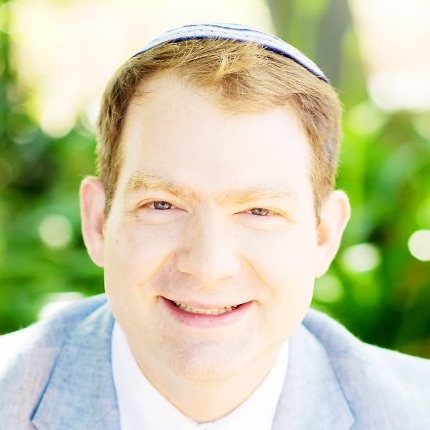
News

Pesach brings post-fire learnings to Morasha community
RABBI SAM THURGOOD
As the Rabbi of Morasha (Beit Midrash Morasha in Sea Point), the community that experienced a devastating fire on the third night of Chanukah, I think about this story somewhat wistfully. If only our fire could have been discussed in so cavalier a fashion. If only it had indeed been simply a tree that was burned instead of six atzei chaim, trees of life, our six beloved Torah scrolls. And yet there are unique lessons that my community and I have learned in the four months since the fire, lessons that I reflect upon as Pesach approaches.
The essence of Pesach is a leap of faith, a supreme act of faith in the unknown, both on behalf of the Jewish people, and in a way even on behalf of Hashem Himself. Hashem tells us about this leap through His prophet Jeremiah when he says to the residents of Yerushalayim, “I remember the kindness of your youth, your bridal love, when you walked after Me in the wilderness, in a land not planted.”
I often ask people to imagine that I would arrive at shul one day, declaring that Hashem has delivered a message through me that it is time for us to pack our bags and head off into the unknown. Apart from the question of my own reliability as a messenger (a question that Moshe himself grappled with), the fact remains that people do not easily move into the unknown; but that nonetheless, that is the key to all true growth.
As Rabbi Lord Jonathan Sacks points out, the decisions to marry, to have children, to begin a new job, or move to a new place – all of these and more are acts of faith, decisions that show a willingness to trust in Hashem to support and guide us through our unformed future.
This was especially true in the case of our ancestors in Egypt, a slave nation which was in a position uniquely unsuited to embracing the unknown. As Alexander Solzhenitsyn writes about a prisoner in the Soviet Gulag, “That bowl of soup – it was dearer than freedom, dearer than life itself, past, present, and future.” Our community was thrust into an unknown future, not through choice. The message of Pesach and the experiences of our ancestors teach us that Hashem will take care of us as He did them.
We experience that love and care in the second pillar of Pesach – compassion. The word Pesach means not only “Passover” but also “compassion”, and shows that Hashem had compassion upon the Jewish people in Egypt, saving us from our affliction, and redeeming us from servitude.
Our community, too, has been the recipient of Hashem’s remarkable compassion, expressed through His children here on earth. On one of our first Shabbatot after the fire, I remarked that we were in a situation in which we seemed to have nothing – our shul was destroyed, our Torahs were no more, and the books and furniture that did survive were all with the restorers to salvage what they could. And yet, we had everything – praying in a beautiful hall from lovely Siddurim, sitting comfortably at seats and tables, and reading from a Sefer Torah – all gifts and loans from our friends.
The Torah emphasises that Pesach should instil in us compassion as well. “Love the stranger, for you were strangers in Egypt”, “Give rest on Shabbat to your workers and animals also, since you know well the pain of slavery.” It is one thing to lose so much, but another thing entirely to have loving friends to help you when you do, to make manifest Hashem’s compassion in the world.
Pesach is also the festival of the future – in which we left the darkness of Egypt, entering the uncertainty of the wilderness, but with a vision of our ultimate destiny in the Land of Israel. The task of our ancestors was not only to leave slavery, but to embrace our new role in redemptiveness.
At Morasha too, we are aware that our displaced state is simply the journey between past and future reality. Although, ultimately, we too will follow our ancestors and make aliyah, for now our task is to rebuild and restore our shul to what it was before, and with Hashem’s help, something even greater.
But moving forward brings challenges. Our Sages tell us that “all beginnings are difficult”, but the Chassidic Master Rabbi Tzadok HaKohen (Tzidkat HaTzadik 170) explains that this is because we live in an imperfect world, and even the blessings that Hashem showers upon us are first expressed through challenges. However, through work and prayer, we are able to reveal the concealed blessing that was the intended purpose all along.
Finally, I think back to the burning bush, which many of our rabbis comment is a symbol of the Jewish people. “The bush burned in fire, but the bush was not consumed.” The Jewish people have been “burned in fire” many times, through unbelievable challenges and difficulties, persecutions and disasters, and yet miraculously, we were never consumed. Am Yisrael Chai (the people of Israel live)!
We are here and, in many ways, stronger than ever. Morasha too, burned in fire, but we are equipped with the lessons of Pesach. With faith in Hashem, compassion from our friends, and commitment to the future, our community, too, will not be consumed. Instead it will transform the raging flames into the light of hope and Torah, shining as a beacon for all seeking a spiritually home and connection.
May Hashem bless us all with a Chag Pesach Kasher VeSameach, and may we merit complete redemption.
- Rabbi Sam Thurgood is the rabbi of the Beit Midrash Morasha congregation in Cape Town.




